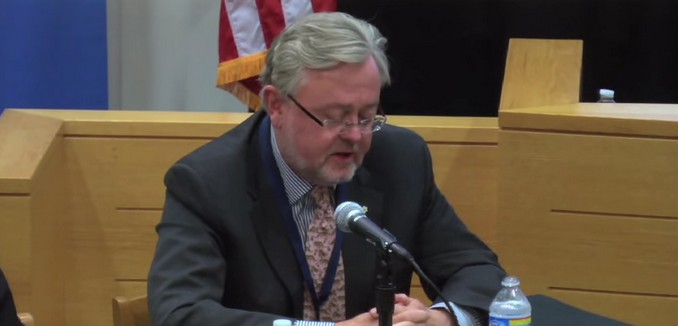Blogger “Elder of Ziyon” noted in a post today that controversial law professor William Schabas, who has been chosen to head a commission investigating Israel’s conduct during Operation Protective Edge by United Nations Human Rights Council (UNHRC), participated in the Russell Tribunal after a man he greatly respected, Judge Richard Goldstone, described the tribunal as a farce.
In a 2011 op-ed written for The New York Times, Goldstone wrote:
One particularly pernicious and enduring canard that is surfacing again is that Israel pursues “apartheid” policies. In Cape Town starting on Saturday, a London-based nongovernmental organization called the Russell Tribunal on Palestine will hold a “hearing” on whether Israel is guilty of the crime of apartheid. It is not a “tribunal.” The “evidence” is going to be one-sided and the members of the “jury” are critics whose harsh views of Israel are well known.
While “apartheid” can have broader meaning, its use is meant to evoke the situation in pre-1994 South Africa. It is an unfair and inaccurate slander against Israel, calculated to retard rather than advance peace negotiations.
After the Goldstone report was initially released, Schabas had called for Goldstone to be considered for the Nobel Prize. Even after Goldstone retracted his report Schabas still referred to him as his “good friend.” Yet, Goldstone’s harsh condemnation of the Russell Tribunal didn’t preclude Schabas from participating in it.
It wasn’t just the nature of the Russell Tribunal that was problematic, as “Elder of Ziyon” points out, but also its troubling makeup.
Schabas chose to side with a washed up rock star and a firm believer that shape-shifting aliens control our minds from the moon – instead of his former idol Goldstone.
Goldstone isn’t the only one of Schabas’ heroes who differs with him. Earlier this week it was reported that human rights icon, Aryeh Neier, called on Schabas to step down from the commission because he said he wanted to see Israeli Prime Minister Benjamin Netanyahu prosecuted. In Neier’s words, “any judge who had previously called for the indictment of the defendant would recuse himself.”
[Photo: Case Western Reserve University School of Law / YouTube ]




